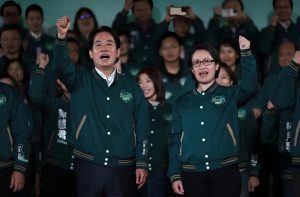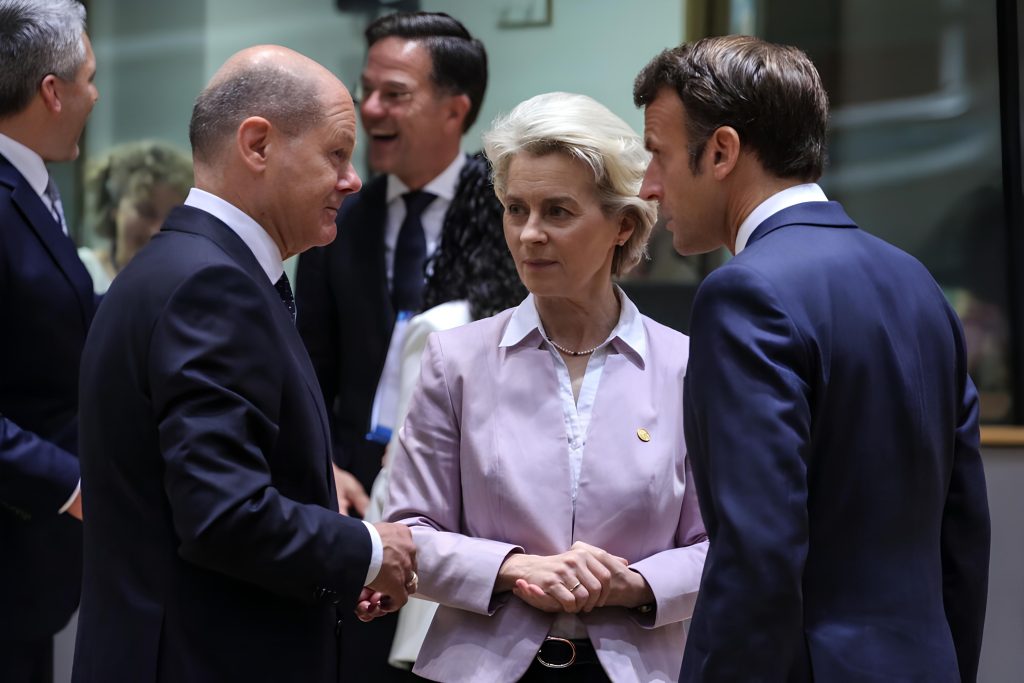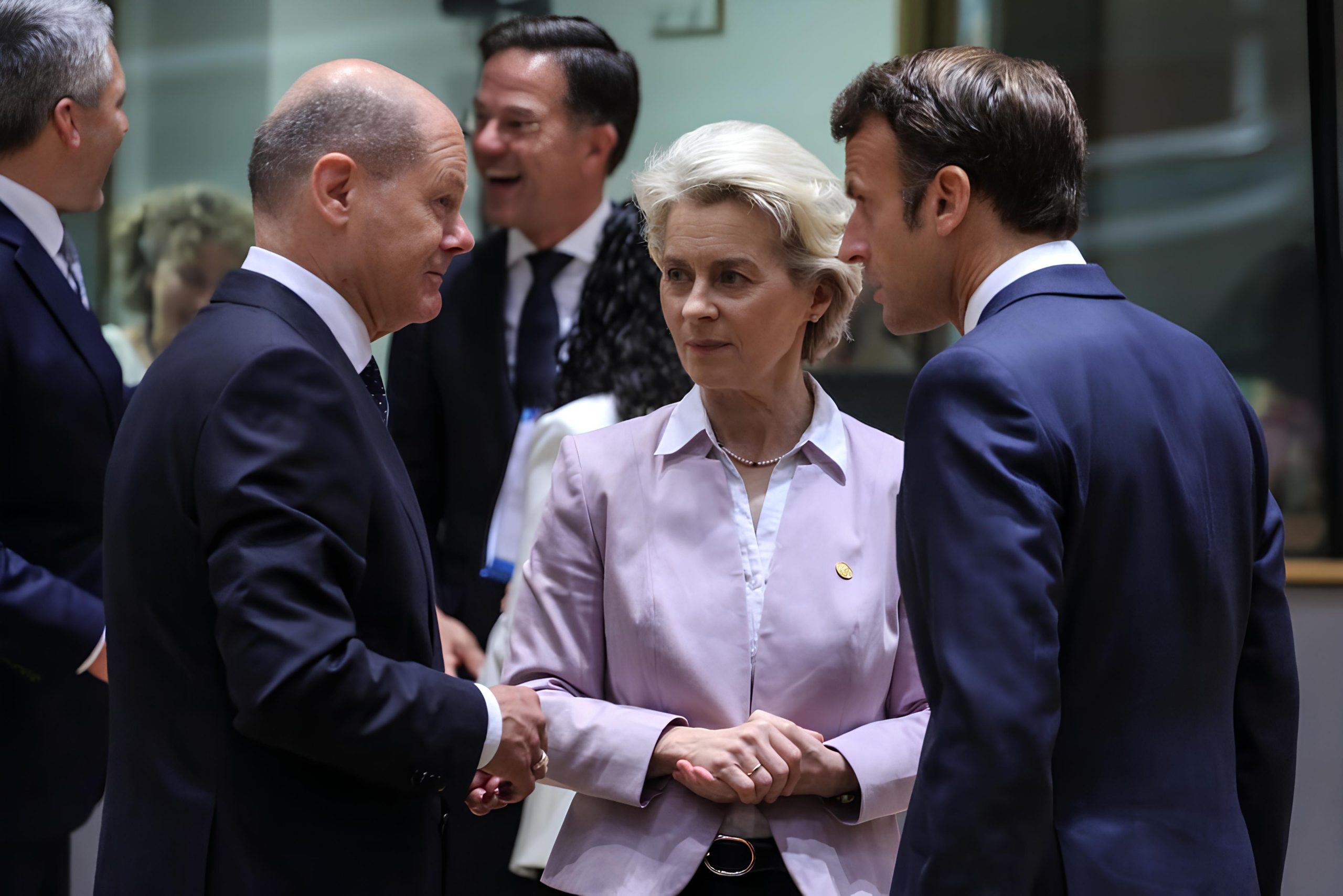








Macron’s military support proposal highlights leadership and strategic disagreements among European and transatlantic allies.


Welcome back to Europe Brief, where we take a look at the evolving dynamics and challenges within the Euro-Atlantic region amidst the ongoing Russo-Ukrainian conflict. Today, we delve into the recent developments following the capture of Avdiivka by Russian forces, a move celebrated by President Putin as a significant victory. This event triggered a response from Western leaders, leading to a conference in Paris aimed at reinforcing support for Ukraine.
As the Russo-Ukrainian war continues to unfold with its fierce intensity, a series of new and concerning developments have arisen in the Euro-Atlantic region. In February 2024, Russian advance into Ukraine has become fruitful and has captured the Eastern Ukrainian town Avdiivka which is deemed important by Russian President Vladimir Putin since he hailed this capture as an important success of the Russian army. After the Ukrainian withdraw from the key city of Avdiivka, Western leaders organized a conference in support of Ukraine. With the initiative of French President Emmanuel Macron all 27 heads of states or governments of the EU came together in the Élysée Palace in Paris on February 26, 2024. The topics that were discussed; cyber-defence, coproduction of arms in Ukraine, defence of the countries that are directly touched by the Russian invasion, capacity to support Ukraine in its borders with Belarus and mine clearance operations.
After the Conference in Support of Ukraine, it has become obvious that amongst EU and amongst transatlantic allies there are some divergences of opinions mainly fueled by the question of who is the (de facto) leader of EU bloc. With Angela Merkel leaving politics, EU bloc has lost its de facto leader who has coordinated many issues throughout the years. After Olaf Scholz acquired the office in 2021 as Prime Minister, he was not that influential vis-à-vis Merkel and that’s how Macron wanted to assert his dominance to become a de facto leader of the EU besides Ursula von der Leyen, Charles Michel, and Roberta Metsola. Furthermore, thanks to the support he was given in the 2022 French Elections by the EU leaders, Macron positioned himself as the EU’s de facto leader, a trend which is noticeable due to Macron’s political discourse, demarche, and his ambition to steer the EU bloc against the Russian invasion of Ukraine in the recent years.
In the Conference in Support of Ukraine on February 26, 2024, Macron highlighted the importance of prevailing over Russia by highlighting that this is crucial for the European security and stability. Furthermore, he said that: “We cannot disregard the possibility of sending troops to Ukraine” however, he also said to a journalist that there’s no unanimity among leaders to sending troops to Ukraine. So, it is still vague that by saying “we”, who did Macron referred to? Because it is apparent that there is still no consensus among Western leaders to further support Ukraine militarily.
Olaf Scholz is against further military support to Ukraine as it might trigger Russia to go nuclear, and moreover he criticized his allies Macron and Sunak by insinuating that they are already directly involved in the war, of course this attracted criticizations from France and UK. The chair of the UK Parliament’s Foreign Affairs Committee Alicia Kearns stated that Scholz must stop holding back the Europe’s security and should give Taurus missiles to Ukraine.
French President Macron’s discourse on sending military troops to Ukraine was rejected by other NATO members like US, UK, and Germany. Consequently, Macron’s comments might not be as ‘weighed, thought through and measured’ as he believes since he didn’t completely consult on his allies while making promises about military aids. Macron also said in the Conference that everything is possible if it might help them to achieve their goals and he highlighted that “we will do everything we can so that Russia won’t win this war”, however, it is still unclear whether, by using the term ‘we,’ Macron has accurately represented the views of all European leaders, or if he is once again attempting to assert dominance within the EU mechanism.
Macron’s political discourse also elicited a fierce reaction from Russia, as anticipated. Kremlin’s State Councilor and Press Secretary Dmitry Peskov stated that in case NATO or Western powers would send troops to Ukraine, there is a need to talk about the inevitability of a direct conflict not the possibility. Russian President Putin also accused Western leaders of not understanding what a direct war between Russia and Western countries could lead as he argues that might be the end of civilization since he claims to use the nuclear arsenal of Russia. Putin also made a reference to the leaders who tried to invade Russia in the past and of their fates such as Napoléon and Hitler. For the moment, Macron’s prospect of sending military troops to Ukraine did not get any serious action from the Western countries and it once again revealed the fragmentation between Western countries, leaders, and their different positions.
Written By: GABRIEL RAMIREZ
Written By: DILARA SAHIN
Written By: DILRUBA YILMAZ
Written By: NILAY CELIK
Written By: ELDANIZ GUSSEINOV
Written By: JOSEF SCHOEFL
Written By: SELCAN BEDIRHANOGLU
Written By: FATIH CEYLAN
FA’s flagship evening newsletter guilding you through the most important world streis ofthe day. Delivered weekdays.
